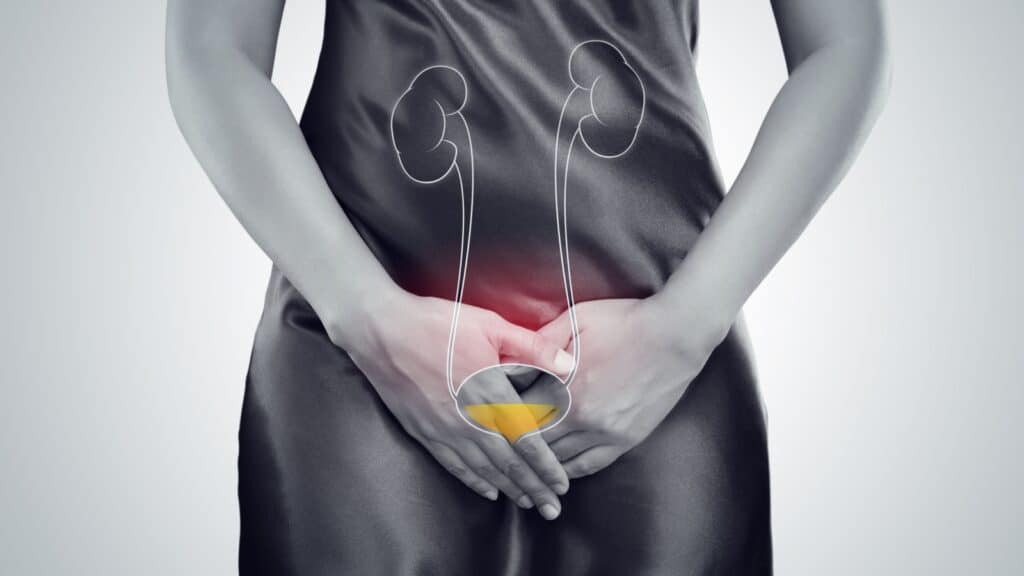The Secret To Beating Erectile Dysfunction: Don’t Let ED Ruin Your Sex Life
Erectile dysfunction (ED) can significantly impact intimate relationships, but there are many ways to manage it and maintain a satisfying sex life. From open communication with your partner to lifestyle changes and treatment options, couples can work together to address ED and improve their physical and emotional connection. Exercise plays a crucial role in managing ED by enhancing cardiovascular health and reducing stress. By focusing on overall wellness and exploring new forms of intimacy, many couples find they can adjust to ED and even strengthen their relationship in the process.
Communicating About ED

Open and honest communication is crucial when dealing with erectile dysfunction in a relationship. Choose a relaxed setting away from the bedroom to discuss concerns and feelings about ED. Emphasize that ED is a medical issue, not a reflection of attraction or desire. Listen to your partner’s perspective without judgment and validate their emotions. Consider seeing a sex therapist together if communication remains difficult. Approaching the conversation with empathy and a team mindset can help couples work through ED challenges together.
Lifestyle Changes for ED

Adopting a healthier lifestyle can significantly improve erectile function. Key changes include maintaining a balanced diet rich in fruits, vegetables, and whole grains, quitting smoking, limiting alcohol consumption, and managing stress through relaxation techniques. Losing excess weight through diet and exercise may also have a substantial positive impact on ED symptoms.
Additionally, getting adequate sleep and avoiding illicit drugs are essential factors in maintaining overall sexual health. These lifestyle modifications help manage ED and contribute to better cardiovascular health, which is closely linked to erectile function.
Treatment and Intimacy Adjustments

Several effective treatments are available for managing erectile dysfunction, including oral medications like PDE5 inhibitors, injectable or suppository drugs, and vacuum erection devices. When adjusting intimacy, couples can focus on extended foreplay, explore oral sex and manual stimulation, or try sex toys for added pleasure. Experimenting with timing, such as taking advantage of morning erections and exploring non-genital erogenous zones, can help maintain a satisfying sex life. It’s important to reduce performance pressure and focus on the journey of physical intimacy rather than solely on achieving an erection.
Exercise Benefits for ED

Regular physical activity offers significant benefits for managing erectile dysfunction. Engaging in at least 40 minutes of moderate to vigorous aerobic exercise 4 times per week can improve cardiovascular health, increase testosterone levels, and reduce stress – all contributing to better erectile function. Studies have shown that 160 minutes of exercise per week for six months can decrease erectile problems. Activities like brisk walking, jogging, cycling, or swimming are particularly effective. One study found that men who exercised for just 30 minutes a day were 41% less likely to develop ED compared to sedentary men.
Exploring Psychological Factors in ED

Psychological factors play a significant role in erectile dysfunction (ED), often interacting with physical causes to exacerbate the condition. Stress, anxiety, depression, and relationship issues can all contribute to ED or make it more difficult to manage. Performance anxiety, in particular, can create a self-perpetuating cycle where fear of erectile failure leads to increased instances of ED. Addressing these mental health aspects is crucial for effective ED treatment.
Cognitive-behavioral therapy (CBT) has shown promise in helping men overcome psychological barriers related to ED. Additionally, mindfulness techniques and stress reduction practices can help alleviate anxiety surrounding sexual performance. It’s important to recognize that ED can also cause psychological distress, potentially leading to lowered self-esteem and relationship strain. A holistic approach that addresses both physical and psychological factors is often most effective in managing ED and improving overall sexual health and well-being.
The Impact of Diet on Erectile Function

A heart-healthy diet rich in fruits, vegetables, whole grains, and lean proteins can significantly improve erectile function. Studies have shown that men who follow a Mediterranean diet are less likely to develop erectile dysfunction (ED). This diet emphasizes foods high in flavonoids, such as berries, citrus fruits, and dark chocolate, which may lower the risk of ED by up to 19%. Omega-3 fatty acids found in fish like salmon can boost nitric oxide production, improving blood flow.
Additionally, nuts like walnuts and pistachios have been linked to better erectile function due to their high content of arginine, an amino acid that helps produce nitric oxide. Watermelon, rich in citrulline, may also positively affect ED by relaxing blood vessels. Conversely, diets high in saturated fats and processed foods can contribute to ED by promoting cardiovascular disease and obesity. Making dietary changes alongside other lifestyle modifications can be an effective strategy for managing ED and improving overall sexual health.
Innovative Therapies for ED Management

Recent advances in erectile dysfunction (ED) treatment have introduced several innovative therapies. Low-intensity shockwave therapy (LIST) is a promising non-invasive option that uses acoustic waves to potentially improve blood flow and vascularization in penile tissue. While still in early research phases, stem cell therapy has shown potential for repairing damaged penile tissues and blood vessels. Platelet-rich plasma (PRP) therapy, which involves injecting a patient’s own blood plasma into the penis, is being explored as a regenerative treatment.
Additionally, new medications targeting central nervous system pathways, such as melanocortin activators, are under investigation. Gene therapy, aiming to modify genes affecting erectile function, represents a frontier in ED research, though it remains in early experimental stages. While these emerging therapies show promise, more extensive clinical trials are needed to fully establish their safety and efficacy for widespread use in ED management.
The Influence of Self-Esteem

Self-esteem plays a crucial role in shaping the dynamics of romantic relationships, particularly when it comes to managing erectile dysfunction (ED). Individuals with low self-esteem may experience heightened anxiety and insecurity about their sexual performance, potentially exacerbating ED symptoms. This can create a negative feedback loop, where poor sexual experiences further diminish self-esteem, leading to increased relationship stress.
Conversely, those with higher self-esteem tend to approach ED challenges more constructively, maintaining open communication with their partners and actively seeking solutions. Research has shown that improving self-esteem through therapy or self-help techniques can positively impact both ED management and overall relationship satisfaction. By fostering a sense of self-worth independent of sexual performance, individuals can reduce performance anxiety and create a more supportive environment for addressing ED within their relationships.
Wrapping Up ED Management

Effective management of erectile dysfunction (ED) requires a comprehensive approach that addresses both physical and psychological factors. Lifestyle modifications, including regular exercise, a healthy diet, and stress reduction, play a crucial role in improving erectile function and overall sexual health. Open communication with partners is essential for maintaining intimacy and reducing anxiety associated with ED.
While various treatment options are available, from oral medications to innovative therapies like low-intensity shockwave therapy, the choice of treatment should be personalized based on individual needs and preferences.
It’s important to remember that ED is a common and treatable condition, and seeking professional help from healthcare providers or sexual health specialists can lead to significant improvements in quality of life and relationship satisfaction. By adopting a holistic approach to ED management, many men can successfully overcome this challenge and maintain fulfilling intimate relationships.
From Stressed to Blessed: The Ultimate Guide to Mind-Blowing Massage Styles

Massage therapy offers a diverse array of techniques, each designed to address specific needs and preferences. From the gentle strokes of Swedish massage to the targeted pressure of deep tissue work, there’s a style to suit every individual seeking relaxation, pain relief, or improved wellness.
READ: From Stressed to Blessed: The Ultimate Guide to Mind-Blowing Massage Styles
The One Post-Sex Habit Every Woman Should Know for Better Health!

Sexual health is an important aspect of overall well-being and understanding the practices that can help maintain it is crucial. One such practice is urinating after sexual intercourse. While it may seem like a small step, peeing after sex can have significant health benefits, particularly for women.
READ: The One Post-Sex Habit Every Woman Should Know for Better Health!
Science Tells Us What To Expect As We Age: Strategies For Thriving In Later Life

How does aging affect our bodies and minds, and how can we adapt to those differences? These are questions that pertain to us all. Aging gradually alters people over decades, a long period shaped by individuals’ economic and social circumstances, their behaviors, their neighborhoods, and other factors. Also, while people experience common physiological issues in later life, they don’t follow a well-charted, developmentally predetermined path. Let’s take a look at what science has told us to expect. Read: Science Tells Us What To Expect As We Age: Strategies For Thriving In Later Life
3 Simple Somatic Movements You Can Do To Calm Your Nervous System

Daily life can be unnerving. And it’s easy to go from calm to anxious or nervous in a flash. What’s harder is to go from anxious or nervous to calm.These simple movements that I am going to share here have been found to successfully move an individual from a state of anxious nervousness to a state of calm. Read: 3 Simple Somatic Movements You Can Do To Calm Your Nervous System
Join Us

Join us on this empowering journey as we explore, celebrate, and elevate “her story.” The Queen Zone is not just a platform; it’s a community where women from all walks of life can come together, share their experiences, and inspire one another. Welcome to a space where the female experience takes center stage. Sign up for our newsletter so you don’t miss a thing, Queen!








